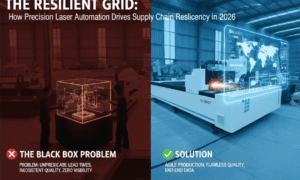The Oil & Gas industry is undergoing significant transformations, driven by the dual goals of optimizing efficiency and minimizing environmental impact. Digitization, Data Centralization and Artificial Intelligence are at the forefront of this shift, providing tools that help streamline operations, enhance safety, and drive innovation. From improving drilling and extraction to optimizing transport and distribution, AI and data-driven technologies offer a competitive edge in a complex, high-stakes industry.
Sridevi Kakolu currently working as a Technical Architect in Boardwalk Pipelines. She has 18 years of IT experience in Insurance, Oil & Gas, Telecom and Healthcare domains. Extensively worked on digitization and transforming business processes with emerging technologies and helped organizations visibility on data and workflow processes. Predominantly she played critical role in solving IT business challenges and implemented robust applications helped organizations gain productivity in Oil & Gas industry. Currently she is focusing on driving systems digitization and innovation in natural gas field operations at Boardwalk Pipelines.
1. Share your journey into the oil and gas industry. What initially drew you to this field, and what motivated you to pursue a career here?
[Sridevi Kakolu] I started my journey with the oil and gas industry in 2015, working across downstream, upstream, and midstream sectors. In natural gas field operations, I quickly recognized the potential for empowering users through digitization, bringing transformative benefits to the sector. Advanced data collection and analysis allow operators to make real-time decisions, reducing downtime, preventing leaks, and optimizing field operations. Experiencing how digital tools enhance decision-making and resource allocation solidified my commitment to advancing technological integration. I wanted to bridge the gap between traditional methods and innovative solutions, helping field teams adopt these technologies to increase safety, streamline processes, and reduce environmental impact.
2. As an experienced computer science architect in a predominantly male industry, what are some of the key challenges you’ve faced, and how have you overcome them?
[Sridevi Kakolu] One of the key challenges has been overcoming biases and stereotypes in a male-dominated field. Early in my career, I sometimes felt my technical expertise was underestimated. To overcome this, I focused on consistently demonstrating my skills and knowledge, building a strong track record of successful projects. Networking and finding mentors within the industry also helped me navigate these challenges. By actively participating in industry conferences and forums, I was able to establish myself as a credible and reliable professional.
3. What unique challenges have you encountered as a seasoned computer science architect in a largely male-dominated industry, and what strategies have you used to navigate and overcome them?
[Sridevi Kakolu] As a Technical Architect at Boardwalk, I focus on identifying new business opportunities, cultivating client relationships, and driving the adoption of our digital solutions. A key part of my role involves designing and implementing robust web and mobile applications that streamline field operations and enhance productivity. By ensuring high data visibility, protection, and integrity, I help clients make more informed decisions while safeguarding sensitive information. Acting as a liaison between technical teams and business stakeholders, I ensure that our innovations meet strict technical standards and address critical market needs.
4. Given your dedication to elevating industry standards through digital solutions, what are some of the most significant technological innovations you’ve encountered or contributed to in recent years?
[Sridevi Kakolu] A key innovation I’ve contributed to is the integration of IoT technology into pipeline management systems, enabling real-time monitoring and predictive maintenance that drastically cuts down on downtime and minimizes operational risks. I’ve also been involved in developing advanced data analytics platforms that support smarter decision-making and improved efficiency. Additionally, implementing multilingual mobile applications for field operations has streamlined workflows, enhancing data collection and communication for more efficient processes across teams.
5. As you look to the future of the Oil & Gas industry, how do you see digitization and technological advancements shaping its evolution? In what ways could these innovations enhance industry practices and elevate standards?
[Sridevi Kakolu] The future of the Oil & Gas industry hinges on the deeper integration of digital technologies like AI, machine learning, and blockchain. These innovations will bolster predictive maintenance, enhance safety through improved risk management, and provide greater transparency in operations. Embracing digitization will facilitate more efficient resource management and minimize environmental impact. By leveraging these technologies, the industry can raise the bar for performance, sustainability, and safety, resulting in more resilient and dependable infrastructure.
6. What guidance would you offer to young individuals, particularly women, who are contemplating a career in the Oil & Gas industry?
[Sridevi Kakolu] As an experienced professional in the Oil & Gas industry, my advice to those considering this career path is to embrace every learning opportunity and face challenges head-on. The industry offers a diverse range of roles that can be both fulfilling and impactful. For young women, seeking mentors and allies who can provide guidance and support is especially important. Connecting with professional associations and attending conferences can help you build valuable networking relationships, leading to new opportunities and insights.
Continuous skill improvement and professional development are vital for success in this field. Pursuing small certifications related to oil and gas operations can enhance your qualifications and demonstrate your commitment to growth. Additionally, finding membership associations can provide access to resources, training programs, and networking opportunities that are crucial for career advancement. Engaging in these activities helps you stay current with industry trends and best practices, positioning you favorably for various roles within the sector.
Finally, resilience and adaptability are key traits in this dynamic field. The Oil & Gas industry is constantly evolving, so committing to lifelong learning and remaining open to new technologies will help you thrive. Your unique perspective and contributions are vital for shaping the future of this industry, and with the right support and networking, you can carve out a rewarding career in this sector.



































